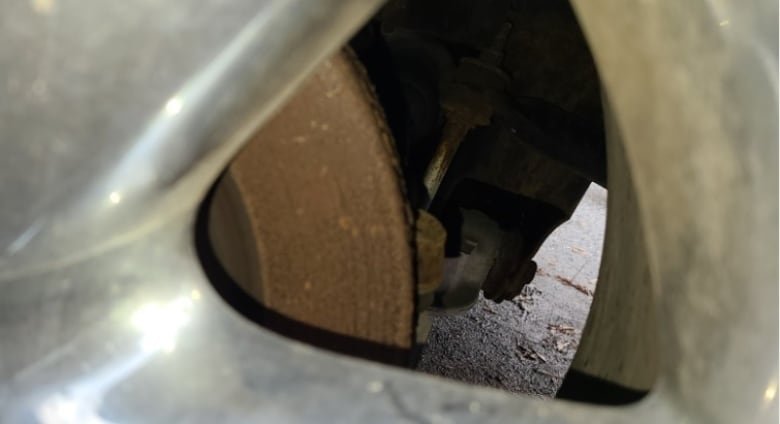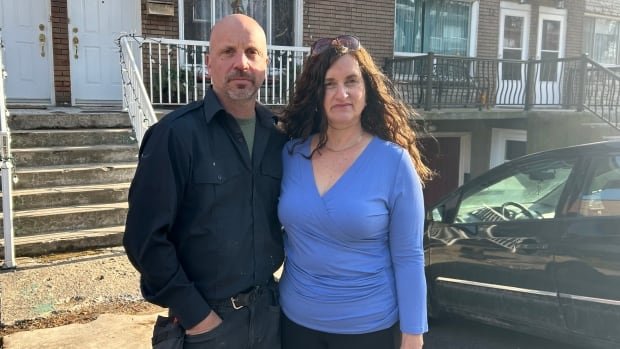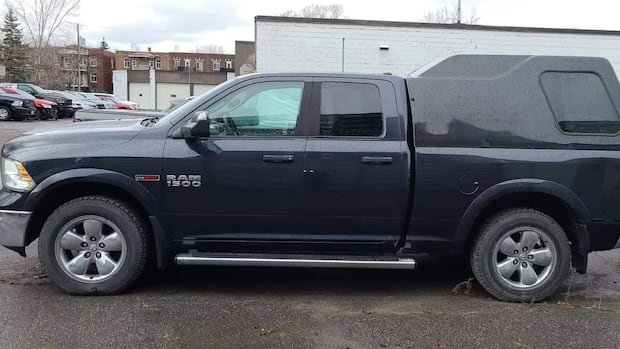When the recall notice came in the mail, Michele Ashenden and her husband Vittorio Pulcini knew it was serious.
The words “Urgent Vehicle Recall” in red letters were sprawled at the top, along with a warning that a defective fuel pump on their truck could lead to sudden loss of power and a crash.
Ashenden and Pulcini didn’t want to drive their 2016 Ram 1500 SLT after getting the recall notice, but had no choice. They needed the vehicle for work.
It soon became obvious the truck was too dangerous to be on the road, Pulcini says.
“It would just randomly shut off while driving, like, 100 per cent completely black. No power, no electronics, no hazards. Nothing,” he said. “[I thought], ‘Oh my God, this is totally dangerous.'”
A Montreal couple turned to CBC’s Go Public after waiting almost two years for their automaker to fix a vehicle defect that prompted an ‘urgent’ recall.
The automaker issued the recall in June 2022. After waiting almost two years for a permanent fix, the Montreal couple reached out to Go Public, overwhelmed with frustration amid mounting expenses.
-
Got a story for Go Public? Email Rosa and the team at GoPublic@cbc.ca
“They indeed told us … that the repairs were not able to be done because the part doesn’t exist,” Ashenden said.
The automaker, Stellantis, manufactures and sells vehicles under 14 brands, including Chrysler, Dodge, Ram, Fiat and Jeep.
An automobile consumer advocate says the time some companies take to fix defects is “outrageous” considering the safety of everyone on the road is at stake.
George Iny, who heads the Automobile Protection Association (APA), tells Go Public delayed fixes are “a big problem” in Canada.
He says some companies will issue a safety recall as required by law then — as in this case — leave owners waiting far too long for the repair, because there are no mandated deadlines on how long they can take to fix the defect.
“They issue the notice arguing that that makes them compliant with the law, but then they haven’t put in the process for the repair yet. It’s really unacceptable,” he said.

It is estimated that as many as one in five vehicles in Canada has an unresolved safety recall, “endangering not only the occupants but also other road users,” according to a June 2023 report by Transport Canada.
There are no publicly available numbers that show how many of those are because automakers don’t have a fix.
The recall that involves Ashenden and Pulcini’s truck affects nearly 200,000 vehicles in Canada and the U.S., more than 55,000 of those are north of the border.
In a statement to Go Public, the automaker said, “such work cannot be rushed,” and that, “this particular remedy features additional redesigned fuel-system components that required engineering, validation, sourcing and service-procedure development.”
Mixed messages, shifting blame
Ashenden and Pulcini needed a vehicle for their home renovation business. But after those breakdowns on the road, they decided using the truck for work wasn’t worth the risk. They got it towed to their local dealership to await repairs.
Instead, they got mixed messages.
The dealership tried to repair the truck but couldn’t — saying the problem was possibly linked to the recall, though they charged the couple for the work anyway.

Later, a customer service representative from the automaker told them the breakdowns were related to the recall, but this was eventually contradicted by a spokesperson for Stellantis, which spoke on behalf of the dealership.
“That message was relayed in error, for which we apologize,” the spokesperson told Go Public. “Further diagnosis is needed to confirm the vehicle’s issues were related to the recall.”
The dealership also refused requests for a loaner vehicle, says the couple, so their expenses started adding up — reaching just over $8,500 for rental vehicles and the attempted repairs.
Stellantis refused to reimburse the couple for the rental costs saying they had declined a second, temporary fix that would have kept the truck on the road. The couple says that’s not true.
However, after Go Public showed the company emails between the couple and the dealership, Stellantis shifted blame to the dealership.
Truck owner Michele Ashenden shows the damage to her 2016 Ram 1500 after it sat parked on the dealership’s lot for over a year waiting for a safety defect repair.
“A review of additional records make clear there was insufficient follow-up with this customer.”
Other details, such as who said what about that offer is unclear, but the automaker now says it will review the couple’s out-of-pocket expenses for “possible reimbursement.”
A permanent fix became available a month ago — too late for Ashenden and Pulcini.
The couple says they had grown tired of waiting and of the mounting costs, so they traded the truck in for another make and model at a different dealership.
No real deadlines
There were a total of 794 vehicle safety recalls issued in 2021, affecting over four million vehicles and vehicle equipment, according to that Transport Canada report.
Adding to the problem is a hole in the rules that allows automakers to drag their heels on completing recalls, says Iny.
The Motor Vehicle Safety Act requires vehicle manufacturers to provide Transport Canada with quarterly recall updates for two years after the notice is issued, but doesn’t set a deadline on when all the fixes need to be completed.

“Transport Canada should be able to hold the manufacturer accountable. There should be consequences,” he said.
Even without mandated deadlines, Iny says automakers need to get recalls done in a reasonable amount of time or offer owners compensation while they wait.
“I think these would be good examples where those carmakers need to step it up. But the root of the problem here really goes to a recall which is, what is Transport Canada doing to ensure compliance?”
Transport Canada says each recall problem, and the timeline for its solution, are “unique” so manufacturers must “control the process to ensure vehicle safety.”
The agency, in a statement to Go Public, says its approach is consistent with that of U.S. regulators.
But unlike their American counterpart, Transport Canada does not publicly disclose how much progress is being made by companies when correcting defects, something Iny says they should be doing.
Ashenden and Pulcini agree that recall completion deadlines are needed so automakers can be held responsible for recalls that drag on.






